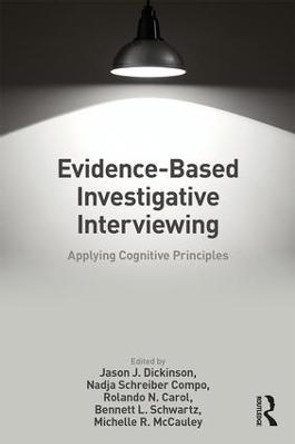Description
The Mindful Interview Method: Retrieving Cognitive Evidence provides investigators with a proven methodology to gather authentic, reliable information from eyewitnesses to help identify potential suspects. The book offers police, and non-law enforcement readers, step-by-step techniques to improve gathering reliable evidence through a "mindful" interview process. The author also provides an assessment component that can measure the reliability of previous interviews performed, and further help to improve the interview process, the skills of the investigator, and thus the reliability of cognitive evidence gathered from future interviews.
It is notable that there is minimal to no instruction or training currently offered to those individuals most-often tasked with interviewing an eyewitness about a crime as part of criminal investigations. Despite the lack of training and certification, we allow interviewers to conduct questioning in the face of well-established research as to the malleability of human memory. The assumption is that officials, trained in the rules of evidence, will innately ask the right questions-and in the proper manner-without the proper understanding of the fragility of human memory or the proper training. That assumption is false, and the reality is quite the opposite. In fact, we learn of cases commonplace in the media, that frequently involve questionable interview tactics, misidentifications, and wrongful convictions of innocent people.
The Mindful Interview Method uses cognitive research to inform the methods and principles for a mindful approach to gathering only the information the subject remembers. This is the best way to use evidence-based lines of questioning, to perform interviews that elicit the most reliable accounts and information for investigative purposes. Considering current reforms on best practices throughout the criminal justice system, the book provides a path forward for professional interviewers to adopt interview methodologies that guide the practitioner to question anyone in a mindful manner.
About the Author
Gil Zamora retired from the San Jose Police Department in 2011 as the police artist. During his time there, he interviewed well over 3,000 eyewitnesses to crimes ranging from indecent exposure to murder. He was certified in the FBI Composite Art technique in 1993 and apprenticed with renowned police artist, Tom Macris, from 1992 - 1995. He developed his own interview methodology, Compositure (1998), based on the cognitive interview technique and focused on the elimination of post event information to stimulate eyewitness memory. His interview technique led him to help solve several hundreds of investigations in the Bay Area and testify as an expert forensic artist in various criminal court cases. Mr. Zamora was a senior instructor (from 2000 - 2014) in the cognitive interview technique and trained investigators throughout the state of California in advance interview techniques certified by P.O.S.T. He provided annual training for SJPD investigators coming into the bureau to inform them about forensic art resources to help in their investigations. Mr. Zamora is a frequent speaker at local universities, victim advocacy groups, and law enforcement agencies.
Book Information
ISBN 9781032200798
Author Gil Zamora
Format Paperback
Page Count 512
Imprint CRC Press
Publisher Taylor & Francis Ltd
Weight(grams) 1460g





